In high school, Henry Chow (C ’10) helped out around his parents’ restaurant, Sang Kee Peking Duck House. More than 15 years later, after going through the traditional route of attending college and pursuing a career in consulting, Chow is back at the family business. Now, his title of general manager doesn't even come close to capturing the role that he plays at Sang Kee.
“Sometimes I’m a dishwasher, sometimes I pick up the phone for take–out, sometimes I'm a cashier, sometimes I'm a construction worker,” Chow says. “But I also think strategy and investments in technology and about how to get through things like the COVID–19 pandemic.”
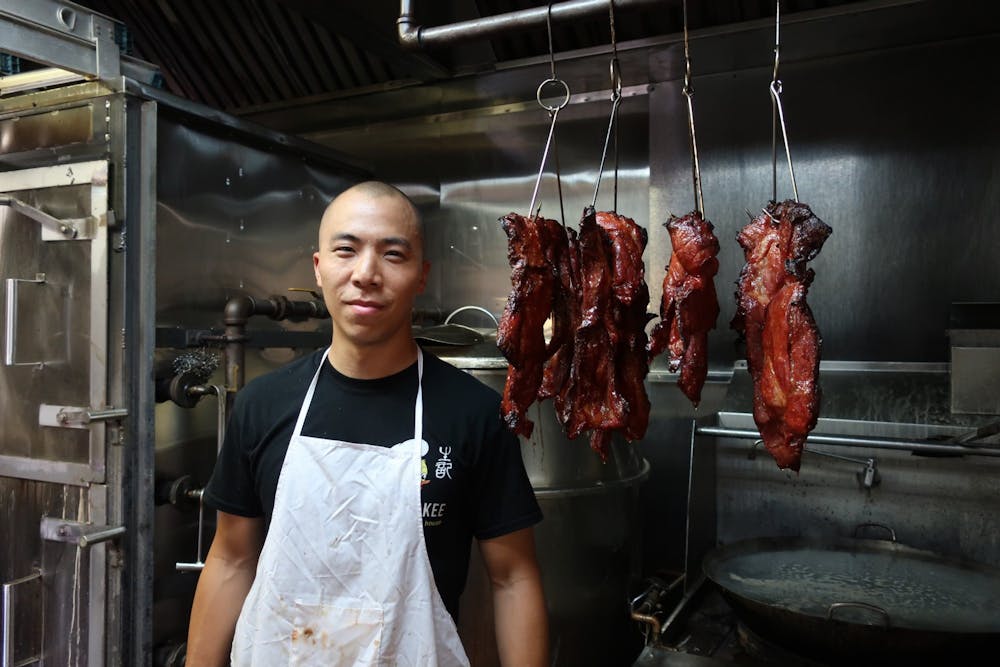
While many businesses are struggling to stay afloat during the pandemic, restaurants in Chinatown were the first to feel this hit. Before the first confirmed COVID–19 case in the United States, and long before many businesses and schools were shut down, racist, xenophobic, and otherwise ignorant attitudes about the origin of the virus were already decreasing the foot traffic in Chinatown.
Nationwide, Asian American businesses have faced declining sales, higher unemployment rates, and anxieties about racial discrimination. Out of all racial groups, Asian Americans were most likely to be unemployed long term in 2020, in part because they’re employed by industries heavily impacted by pandemic closures, like food service. About 10% of Asian American businesses are in the restaurant industry, a greater proportion than for any other racial group. And a Yelp study conducted from February through November of 2020 found that consumer interest in restaurants located within Chinatowns in New York, Los Angeles, San Francisco, and other cities has trailed those in other zip codes, demonstrating that the economic effects of the virus split along racial lines.
Now, after over a year of operating during the pandemic, Chinatown restaurants worry that lingering racist sentiments will continue to affect their bottom line.
Sang Kee was founded in 1980 by Henry Chow's father, Michael Chow, making it one of the oldest Chinese restaurants in Philadelphia. The restaurant is known for its Hong Kong–style barbecue meats, like roast pork and duck that sizzle with an umami flavor, tangy barbecue ribs, and traditional stir fries like beef chow fun.
Over the past 40 years, Sang Kee has garnered an excellent reputation both in and outside of Chinatown—it’s often cited as one of the best Chinese restaurants in the city. However, even more important than rankings, according to Chow, is the personal connection that so many people have with Sang Kee.
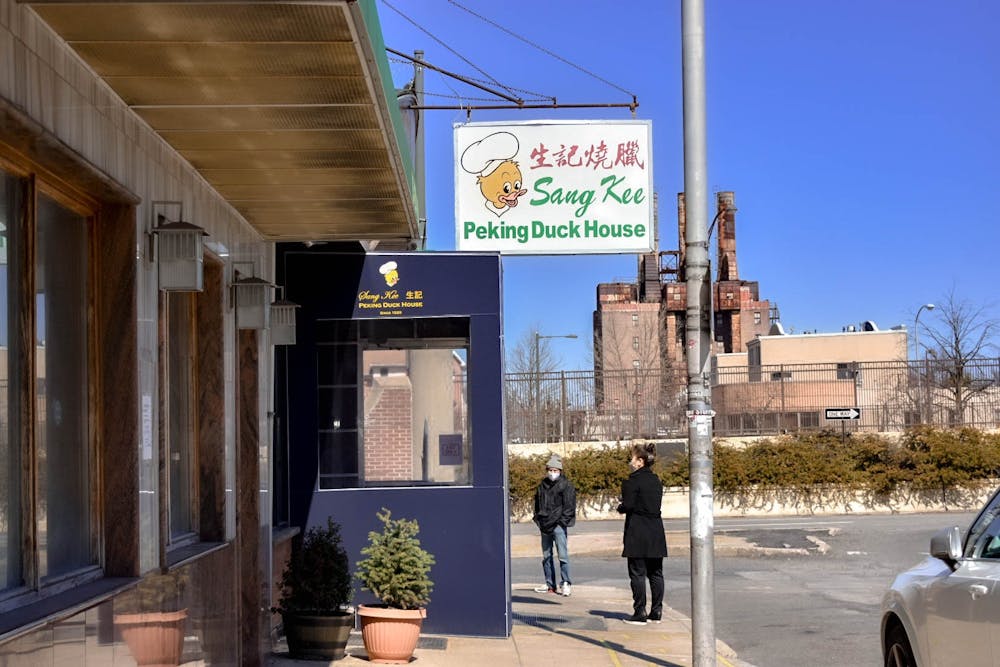
“It's definitely a Philadelphia institution that you see a lot of families come to as their go–to Chinese spot for birthdays, gatherings, casual meals, or just popping in solo. It's a place that I think a lot of people feel like is their second home,” Chow says.
From March until May 2020, while Sang Kee was shut down completely due to COVID–19, Chow found himself behind the scenes, figuring out the best way to approach the pandemic from a business standpoint. He realized that, in order to survive, they would need to earn the trust of the public.
Chow wrote a list of every possible precaution the restaurant could take, such as requiring face masks, conducting daily temperature checks with staff, putting up plastic barriers at the cash register, and doing contactless handoffs. When Sang Kee opened back up for take–out and delivery in May, every single item on Chow’s list was checked off.
“We were basically like, 'There's nothing on this list that we can afford to not do—we need to be able to say we're doing every single one. That's the only way for people to trust us. That's the only way I'm going to trust somebody else. If I can think of it, then we're going to do it,'” Chow says.
There was another reason why Chow was so adamant about taking these safety precautions and explaining them so thoroughly to the public: As a Chinese restaurant, Sang Kee was associated with COVID–19, which originated in Wuhan, China. The business was suffering as a result.
“In January and February and early March, before we had shut down, our sales had already plummeted,” he says. “We were just sitting around most days wondering what to do, wondering what would happen to us.”
Fariha Khan, associate director of the Asian American Studies Program at Penn, says the recent wave of anti–Asian sentiments and violence that have stemmed from COVID–19 is nothing but a repeat of history. In addition to teaching courses on South Asians in the United States, the Asian American community, and Muslim American identity, Khan also teaches ASAM 180: "Asian American Food," which uses food as a lens to explore ethnicity, migration, and race, with a special focus on Philadelphia’s Asian American population.
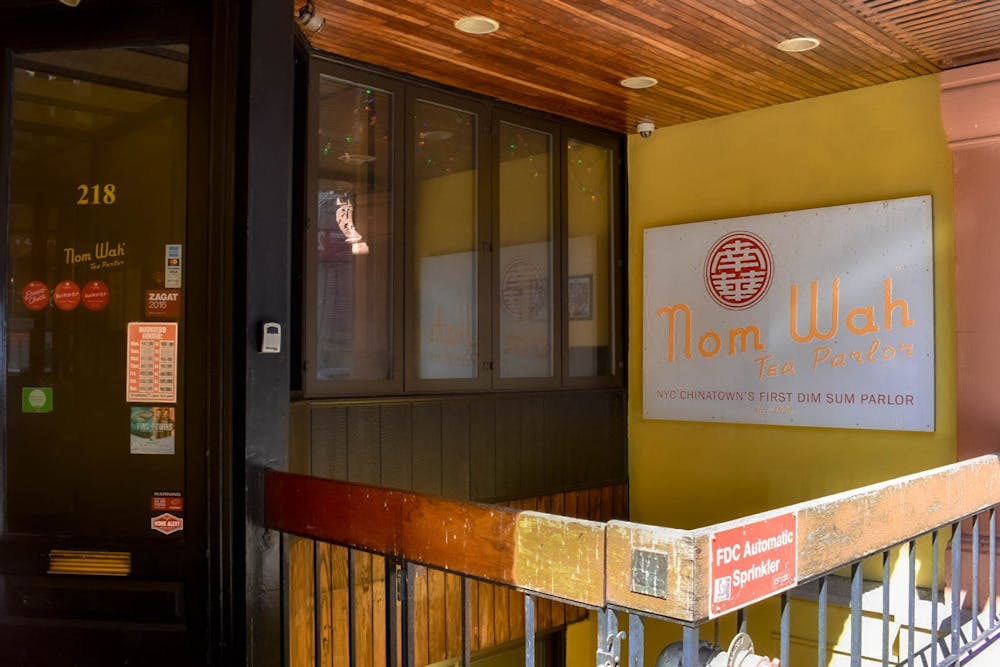
Khan says she loves teaching the course because of how connected food and identity are, especially in many Asian cultures.
“When you cook for someone, that's a real expression of care. When you share lunch with someone, that's also an expression of connection,” Khan says. “When you hide your food, or you're embarrassed by the way that it smells or the way that it looks, it’s also really linked to identity.”
Chinatown, located in Center City, was formed officially in the mid–1800s, when Cantonese immigrants opened laundries, restaurants, grocery stores, and other businesses on Race Street. Since then, the neighborhood has been at the center of many issues of urban renewal and gentrification. In the 1960s, portions of Chinatown were destroyed to make way for the construction of the Vine Street Expressway and the Pennsylvania Convention Center, both of which broke up the neighborhood and have caused massive amounts of pollution.
In the late 1990s, the Philadelphia Phillies baseball team was looking to build a new baseball stadium in the middle of Chinatown. After massive protests and rallies led by the Philadelphia Chinatown Development Corporation, the stadium was built elsewhere.
“[Philadelphia’s] Chinatown has had a history of always struggling to legitimize their existence in a space that is their own," Khan says. “Many of us at Penn consider Chinatown to be a place where you can consume—you can consume food, you can consume products, you can consume an ethnic identity. But Chinatown is actually much more than that: It’s a neighborhood where people live, and go to school, and go to work.”
Walking into Nom Wah today, one can find modern–style dim sum with authentic flourishes: brown and crispy turnip cakes, hot wonton soup, and lots of steamed vegetables. However, the history of Nom Wah actually goes back almost 100 years ago. In 1920, Nom Wah Tea Parlor opened in New York's Chinatown and specialized in mooncakes and other baked goods, before rebranding as a dim sum restaurant in 2011. Shortly after, the owners opened a location in Philadelphia’s Chinatown.
Barb Leung is the head of marketing and operations for Nom Wah, where she has worked for the past nine years. Over the last year, she says Nom Wah’s business has gone down by 80%.
Nom Wah’s Philadelphia location is right behind the Pennsylvania Convention Center, so the loss of foot traffic has hurt the business, says Leung. With people going out less in general and most of the Convention Center’s conferences going virtual, there’s nobody left to be lured in by the smell of soup dumplings off the street.
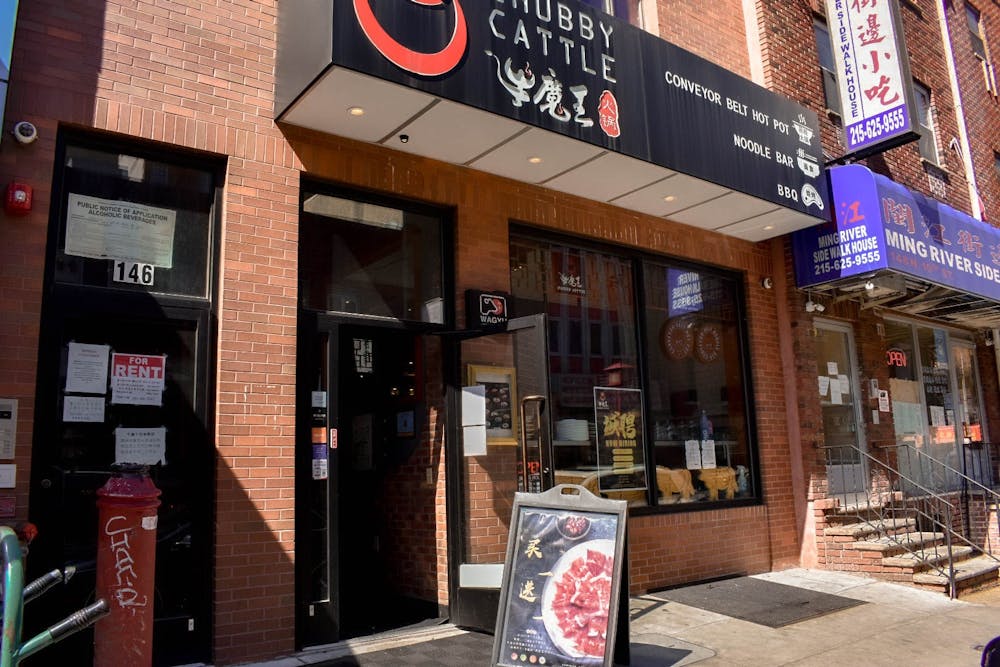
Still, the circumstances of owning a restaurant during a pandemic weren’t the only thing driving down sales. Similar to Sang Kee, Nom Wah experienced a huge decline in business starting in early January, as the first COVID–19 cases began spreading in Wuhan.
“There were a lot of xenophobic attitudes that were at play before the actual pandemic hit the United States,” Leung says. “I want to say that ignorance played a larger component than racism at the start, but I’m not certain. I think some people who didn't mean to be xenophobic ended up being xenophobic because they just were parroting whatever they heard from their friends or from family or from the news.”
Nom Wah, like Sang Kee, also opted to shut down completely between March and May. The Philadelphia location is currently offering only takeout and contactless delivery. Leung says that all decisions regarding the reopening phases are made by the restaurant staff, as they have the closest contact with customers.
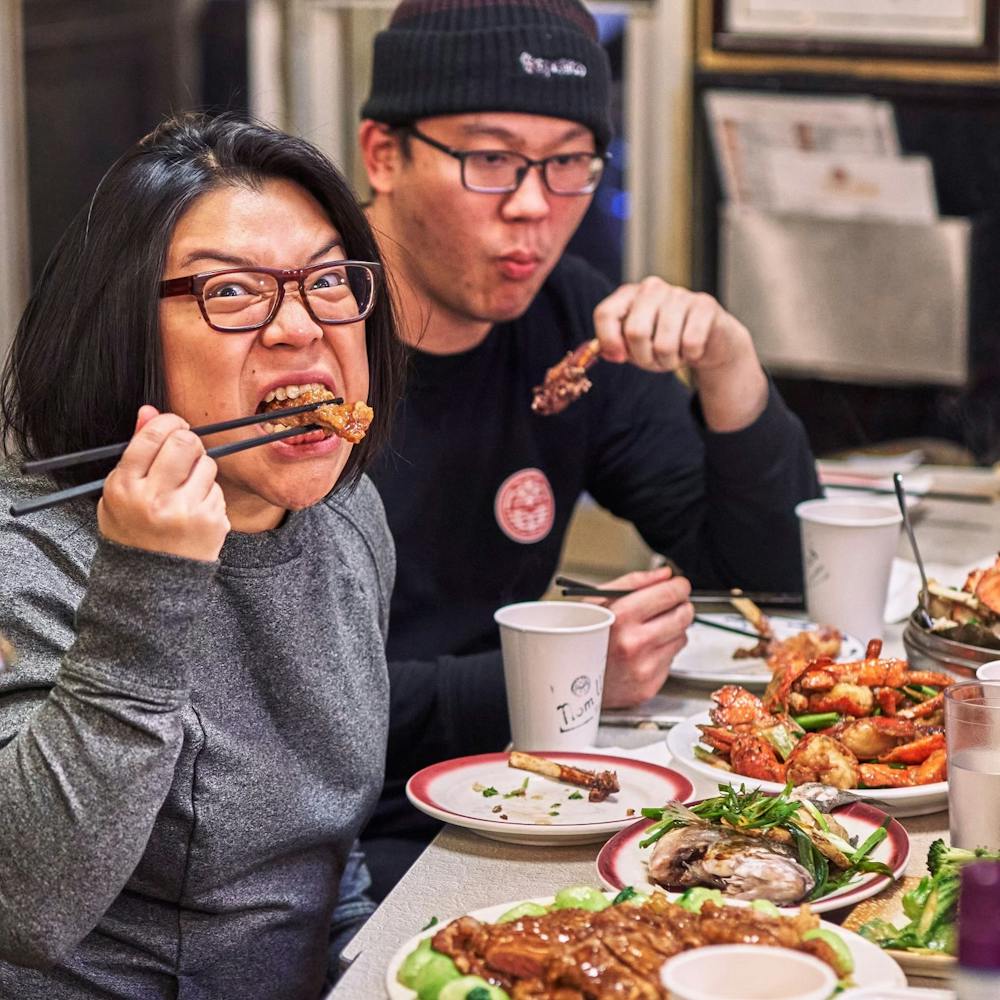
Photo courtesy of Barb Leung at Nom Wah
“Our Philadelphia location opted to close because a lot of the staff live in multigenerational homes, and you don’t know how [COVID–19] will affect your 80–year–old mother, or your young children, or whoever else lives in your household,” Leung says. The prevalence of multigenerational households in Asian American communities has made COVID–19 even riskier, as many older adults live with their children who may be exposed to the virus while attending work or school.
Once Nom Wah reopened, Leung found that online food delivery services such as DoorDash and Caviar were helpful in bringing in business. But they were also somewhat limiting. Not only are customers confined by a radius of a few miles, but there is also a significant delivery fee.
In addition, Leung says, “There’s only so much takeout and delivery that you’re willing to eat.”
As a result, Nom Wah kickstarted a new service where customers in New York can order packages of frozen dumplings directly from the website and have them delivered for free within a four–hour window. Customers can then cook these dumplings on their own and enjoy the taste of homemade Chinese food.
Nom Wah isn't the only restaurant that has taken this opportunity to expand its delivery options. Chubby Cattle, a renowned hot pot restaurant founded by a group of recent Penn graduates, with locations in Philadelphia, Las Vegas, Dallas, and Denver, began offering hot pot delivery during the months when its indoor dining closed.
“Hot pot usually isn’t for delivery; it’s really a dine–in experience. But COVID–19 pushed us to get creative and ramp out our delivery platform,” David Zhao (W ’20) says.
Zhao is one of the founding members of Chubby Cattle, and he oversees everything from lease acquisition and construction management to financing and marketing. The now–owners and operators of Chubby Cattle dedicated between $5,000 to $25,000 to the project while they were students at Penn, bringing the total investment value to $1.5 million. Their vision was to create an innovative hot pot experience by serving ingredients using a refrigerated conveyor belt.
While Zhao is aware of the larger implications of anti–Asian racism and violence, he hasn’t seen an impact on Chubby Cattle directly.
“Our customer base is probably a biased sample size because it's all people who are trying out new food and who are interested in exploring new cultures,” Zhao says. “I think they’re less likely to be part of the same demographic that participates in the anti–Asian racism that we see today.”
Zhao says this past year has been tough and confusing, but he's happy to finally see the light at the end of the tunnel. Unlike Sang Kee and Nom Wah, Chubby Cattle is currently offering dine–in at 25% capacity, in addition to delivery and pickup services.
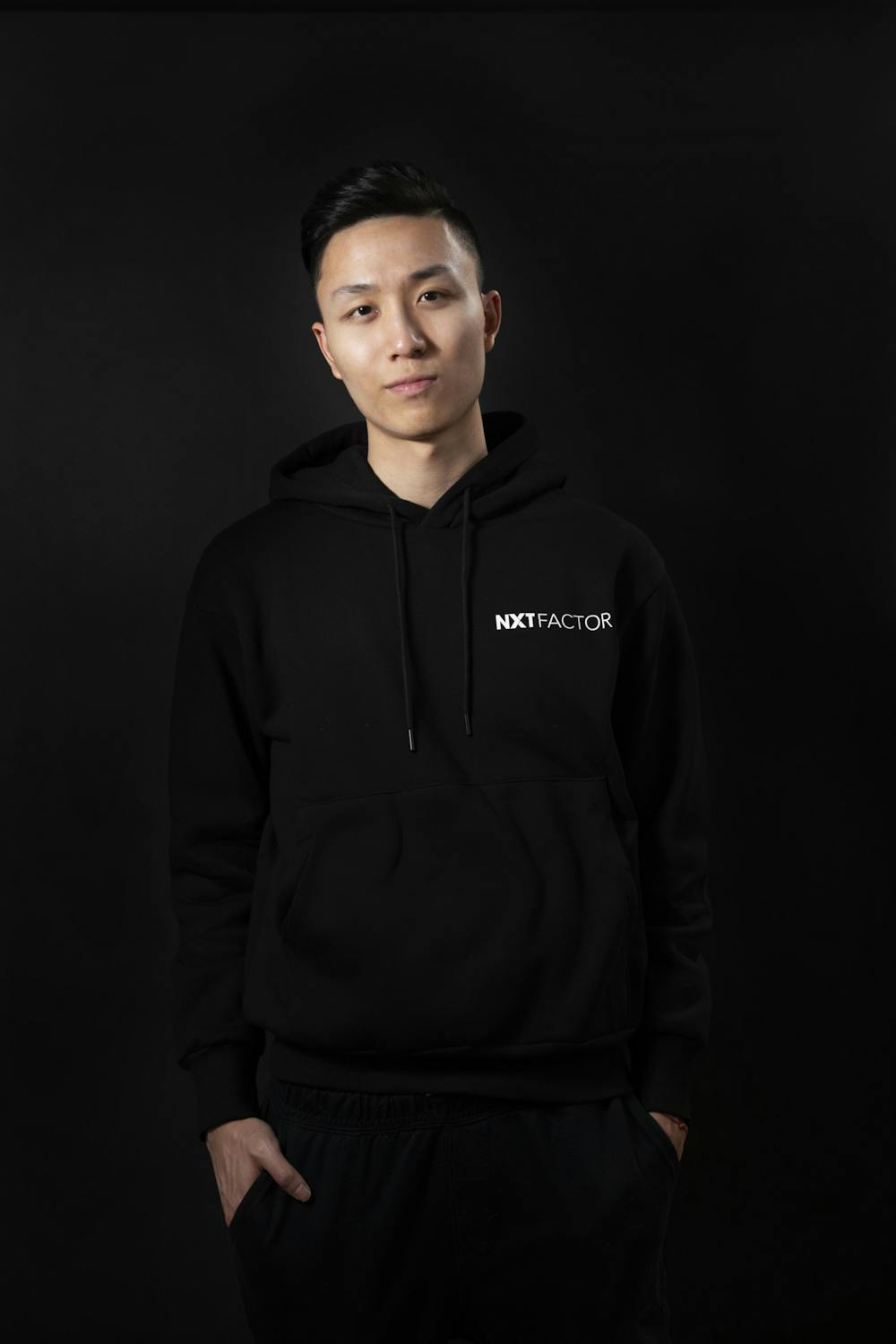
Zhao is optimistic about the future. “I think the capacity will continue to increase, hopefully back to 100% by next semester. And hopefully by then, University City students are all back on campus, and we can go back to operating normally and sustaining that community,” he says.
But right now, restaurants aren't free from the reality of the pandemic or anti–Asian discrimination. Hate crimes targeting Asian Americans have increased drastically: According to the nonprofit organization Stop AAPI Hate, nearly 3,800 hate incidents—ranging from online harassment to physical assault—have occurred against Asian Americans over the past year. This pattern of discrimination reached a breaking point when a shooter killed eight people—including six women of Asian descent—at three spas in the Atlanta area on March 16. Around the country, Asian Americans are calling attention to their experiences with systemic racism.
The narrative of Philadelphia's Chinatown over the past year is just a part of this reckoning.
“Asian Americans are forever foreigners. They have yet to be fully assimilated or yet to be fully considered American,” Khan says. “Even though there isn’t anything about Chinatown that is not American, it’s easier to continue this narrative that is built around misinformation, fearmongering, and racism.”
